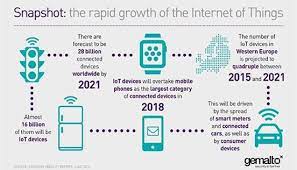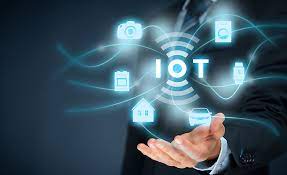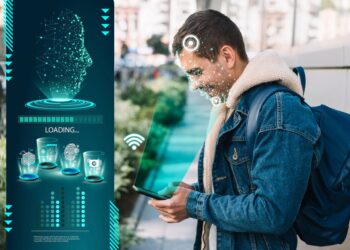The Internet of Things (IoT) is changing the way we interact with the world around us. IoT refers to a network of physical devices, vehicles, home appliances, and other objects that are connected to the internet and can exchange data with each other. The rise of IoT has the potential to transform many aspects of our lives, including the way we work, live, and interact with each other. In this article, we will explore the rise of IoT, its benefits and challenges, and the potential implications for society and the global economy.
The Growth of IoT
The growth of IoT has been driven by advances in technology, including the development of low-cost sensors and processors, improved wireless connectivity, and the availability of cloud computing. These technologies have made it possible to connect a wide range of devices and objects to the internet, enabling them to communicate with each other and exchange data in real-time.
The Benefits of IoT
The rise of IoT has the potential to provide several benefits, including improved efficiency, productivity, and safety. IoT can help to automate many tasks, reducing the time and effort required to complete them. IoT can also help to improve safety by detecting and responding to potential hazards in real-time, such as gas leaks, fires, and other emergencies.
The Challenges of IoT
The use of IoT also presents several challenges, including concerns about data privacy and security, as well as the potential for IoT to be used for malicious purposes. The vast amount of data generated by IoT devices also creates challenges for data management and storage, as well as for the development of algorithms and analytics tools that can make sense of this data.
The Impact of IoT on Society and the Global Economy
The rise of IoT has the potential to transform many aspects of society and the global economy, including transportation, healthcare, agriculture, and manufacturing. IoT can help to improve efficiency and productivity in these industries, as well as to reduce costs and improve outcomes for consumers and businesses. IoT can also help to address social and environmental challenges, such as climate change and urbanization.

The Need for Ethical and Responsible Use of IoT
To ensure the responsible and ethical use of IoT, it is important to establish ethical guidelines and standards for the development and use of these technologies. This includes considering the potential social and economic impacts of IoT, as well as the potential risks and challenges associated with its use. It also includes ensuring that IoT is used in a way that respects individual privacy rights and promotes human values.
Collaboration and Innovation in IoT
Collaboration and innovation are also important for the responsible use of IoT. This includes fostering collaboration between researchers, developers, and stakeholders in the development and use of IoT technologies, as well as promoting innovation in the development of new IoT applications and tools. By working together to develop and use IoT in a responsible and ethical manner, we can ensure that these technologies are used to benefit society and the global economy.
Addressing the Skills Gap in IoT
The rise of IoT requires a skilled workforce that can develop, implement, and manage these technologies. However, there is currently a skills gap in the field of IoT, with many organizations struggling to find workers with the necessary skills and expertise. To address this skills gap, it is important to invest in training and education programs that can help to develop the skills and competencies needed for a career in IoT.
Balancing Innovation and Regulation
The use of IoT also requires a balance between innovation and regulation. While innovation is essential for the development of new IoT applications and tools, it is also important to establish clear regulations and standards for the development and use of these technologies. This includes ensuring that IoT devices and systems are secure and reliable, as well as providing consumers with clear information about the data being collected and how it is being used.

The rise of IoT has the potential to transform many aspects of society and the global economy, providing new opportunities for innovation, efficiency, and safety. However, the responsible and ethical use of IoT requires ongoing attention and consideration, particularly as new challenges and risks emerge. By promoting collaboration and innovation, addressing the skills gap, establishing ethical guidelines and standards, and balancing innovation and regulation, we can ensure that the benefits of IoT are realized while minimizing the risks and challenges. As we continue to navigate the challenges and opportunities associated with the rise of IoT, it is important to remain vigilant and responsive to the evolving needs of society and the global economy.
The Importance of Data Privacy and Security in IoT
One of the key challenges of IoT is ensuring the privacy and security of the data generated by these devices. IoT devices generate vast amounts of data that can be sensitive or personal in nature, and if this data falls into the wrong hands, it can be used for malicious purposes. To address this challenge, it is important to establish clear guidelines and standards for data privacy and security in IoT, as well as to ensure that IoT devices and systems are designed and used in a way that protects individual privacy rights.
The Role of IoT in Sustainability
The rise of IoT also has the potential to play an important role in sustainability, by enabling more efficient and sustainable use of resources. IoT can help to optimize energy use, reduce waste, and improve resource efficiency in a wide range of industries, from transportation to agriculture to manufacturing. By using IoT to create more sustainable and efficient systems, we can help to address some of the most pressing environmental and social challenges of our time.
Ensuring Accessibility and Inclusivity in IoT
As IoT becomes more widespread, it is important to ensure that these technologies are accessible and inclusive for all members of society. This includes ensuring that IoT devices and systems are designed and used in a way that is accessible to people with disabilities or other accessibility needs. It also includes promoting diversity and inclusivity in the development and use of IoT technologies, to ensure that these technologies reflect the needs and perspectives of all members of society.
The Future of IoT
The future of IoT is likely to be shaped by ongoing advances in technology, as well as new challenges and opportunities that arise in the coming years. As IoT continues to evolve, it is important to remain vigilant and responsive to these changes, and to ensure that these technologies are used in a responsible and ethical manner. By promoting collaboration and innovation, addressing the skills gap, and balancing innovation and regulation, we can help to shape the future of IoT in a way that benefits society and the global economy.
Conclusion
The rise of IoT is transforming the way we interact with the world around us, providing new opportunities for innovation, efficiency, and sustainability. However, the responsible and ethical use of these technologies requires ongoing attention and consideration, particularly as new challenges and risks emerge. By promoting collaboration and innovation, ensuring data privacy and security, addressing the skills gap, and ensuring accessibility and inclusivity, we can help to ensure that the benefits of IoT are realized while minimizing the risks and challenges. As we continue to navigate the opportunities and challenges associated with the rise of IoT, it is important to remain vigilant and responsive to the evolving needs of society and the global economy.















